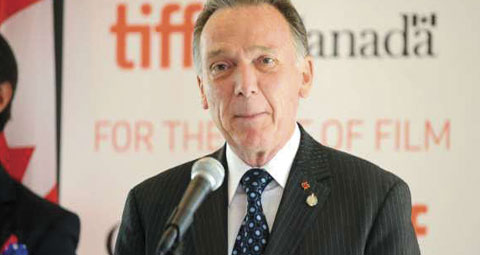BY Martin Dunlop | December 14 | ![]() 0 COMMENTS
0 COMMENTS ![]() print
print

Canada puts climate plans in jeopardy
Country’s decision to pull out of Kyoto Protocol raises questions over Sunday’s Durban deal which SCIAF said was ‘insufficient’
Canada’s decision to pull out of the Kyoto Protocol could put last-minute climate change agreements made at the weekend in jeopardy, it has been reported.
A late decision was agreed on the extension of the Kyoto Protocol and framework for a new climate treaty, at a summit in the South African city of Durban, on Sunday. Canada’s subsequent announcement that it has withdrawn from the 1997 protocol, just hours after the Durban agreement was reached, has been met with criticism.
Protocol aims
The Kyoto Protocol is aimed at fighting global warming and, through the agreement, countries such as China and India take voluntary, but non-binding steps to reduce their carbon emissions. Peter Kent, Canada’s minister of the environment, announced earlier this week, however, that the protocol ‘does not represent a way forward’ and that the country has exercised its legal right to withdraw.
A spokesman for France’s foreign ministry called the move ‘bad news for the fight against climate change,’ while a Chinese spokesman for foreign ministry said that Canada’s decision was ‘regrettable and flies in the face of the efforts of the international community.’ An Indian official added that the withdrawal could jeopardise any gains made at the conference.
Church
Speaking after the climate change talks in Durban, Cardinal Oscar Rodriguez Maradiaga of Tegucigalpa, Honduras, who was present at the UN-sponsored summit, said that climate change is a faith issue because it deals with God’s creation and with poverty.
The Honduran cardinal, president of Caritas Internationalis, a confederation of 165 national Catholic charities, said that, at a time when so many people in the world are starving, it was important for Caritas to be in Durban ‘because one of the causes of starvation is climate change and, especially, irresponsible attitudes towards creation.’
“For the Catholic Church, climate change is not only a matter of thermometers or scientific analysis, we are talking about human beings and the sufferings of human beings,” Cardinal Rodriguez said. “Catholics need to know that climate change is real and it is a problem that must be faced. The way people treat the environment must change quickly, not after all the consequences and tragedies that will come. It is a faith issue because, from the very beginning of the Bible, you see how creation was entrusted to human beings for their administration, not for their exploitation.”
SCIAF reaction
While the Durban conference did not lead to a strong, legally binding commitment to reduce greenhouse gas emissions within a specific time frame, it did lead to international promises to continue working towards that goal.
However the Scottish Catholic International Aid Fund said that ‘insufficient progress in Durban is likely to cost many lives in developing countries.’
“While some positive progress has been made towards agreeing a global legal framework, the major industrialised countries have failed yet again to agree to reduce their greenhouse gas emissions in line with what scientists believe is necessary to avoid dangerous climate change,” Lexi Barnett, SCIAF’s campaigns officer said.











